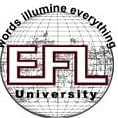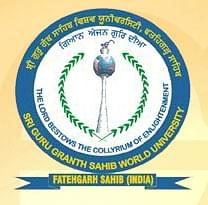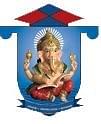Introduction about BA history hons.
A Bachelor of Arts (History)
from the best affordable college in India is an undergraduate academic
degree program that offers students a comprehensive understanding of the past,
including its events, people, cultures, and societies. It is a specialized
program that provides in-depth study of historical periods, themes, and
methodologies, preparing students for a wide range of careers in fields such as
education, research, public service, law, journalism, and more.
The BA History
(Hons.) program typically covers a diverse range of topics and areas of study,
including:
Ø Historical Periods: Students explore different historical
periods, from ancient civilizations to modern times, gaining insight into the
political, social, economic, and cultural developments that have shaped human
history.
Ø Geographical Regions: The program often examines history from a
global perspective, covering various geographical regions and civilizations,
including Europe, Asia, Africa, the Americas, and the Middle East.
Ø Thematic Studies: Students delve into thematic studies that
cut across time periods and regions, such as revolutions, wars, migration,
imperialism, nationalism, gender history, economic history, intellectual
history, and environmental history.
Ø Historiography: The study of historiography introduces
students to the methods, theories, and debates within the discipline of
history, exploring how historical knowledge is constructed, interpreted, and
revised over time.
Ø Research Skills: Students learn research skills, including
how to critically analyze primary and secondary sources, conduct archival
research, evaluate historical evidence, and construct historical arguments.
Ø Writing and Communication: The program emphasizes writing and
communication skills, teaching students how to articulate complex historical
ideas, present their research findings effectively, and engage with diverse
audiences.
Ø Critical Thinking: Students develop critical thinking skills,
learning to interrogate sources, interpret historical events and phenomena,
identify patterns and trends, and contextualize historical developments within
broader social, cultural, and political contexts.
Ø Fieldwork and Internships: Some BA History (Hons.) programs offer
opportunities for fieldwork, internships, or experiential learning, allowing
students to gain practical experience in historical research, museum studies,
archival work, or public history projects.
Ø Upon completing a BA History (Hons.) degree,
graduates possess a versatile set of skills and knowledge that are highly
valued in various professions and industries. They may pursue careers in fields
such as education, academia, research, museum and heritage management, archives
and libraries, government and public service, journalism and media, law,
business, and non-profit organizations.
Overall, the BA
History (Hons.) program equips students with a deep understanding of the past
and its relevance to the present, fostering critical thinking, analytical
reasoning, and effective communication skills that are essential for success in
a rapidly changing world.
What is admission process for admission in BA
history hons.?
The admission
process for the top 5 Bachelor of Arts (History) universities can vary
depending on the specific university or college offering the program and the
country in which it is located. However, here's a general overview of the
typical admission process:
§ Research and Preparation: Prospective students should research
various universities or colleges that offer BA History (Hons.) programs. They
should familiarize themselves with the admission requirements, program
curriculum, faculty expertise, and any specific features or opportunities
offered by each institution.
§ Meet Admission Requirements: Applicants typically need to meet certain
admission requirements set by the university or college offering the BA History
(Hons.) program. These requirements may include a minimum level of academic
achievement, usually demonstrated through high school transcripts or equivalent
qualifications.
§ Submit Application: Prospective students must complete and
submit an application form for admission to the BA History (Hons.) program
through the university's or college's admissions office or online portal. The
application form may require personal information, academic history,
extracurricular activities, and sometimes an application fee.
§ Provide Supporting Documents: Along with the application form,
applicants are usually required to submit supporting documents, which may
include:
§ High school transcripts or equivalent
academic records demonstrating academic achievement.
§ Standardized test scores, if required by the
institution (e.g., SAT, ACT, A-levels, etc.).
§ Letters of recommendation from teachers,
counselors, or other individuals who can speak to the applicant's academic
abilities, character, and potential for success in the program.
§ A personal statement or essay expressing the
applicant's interest in studying history, their academic and career goals,
relevant experiences, and why they are applying to the specific program.
§ Attend Interviews (if required): Some universities or colleges may require
applicants to attend an interview as part of the admissions process. The
interview may be conducted in person, over the phone, or via video conference
and provides an opportunity for the admissions committee to assess the
applicant's suitability for the program.
§ Wait for Decision: After submitting their application and
supporting documents, applicants typically have to wait for a decision from the
admissions committee. Admitted students will receive an offer of admission,
while others may be placed on a waitlist or denied admission.
§ Acceptance and Enrollment: Upon receiving an offer of admission,
students must formally accept the offer and complete any additional enrollment
steps required by the university or college, such as submitting a deposit,
completing housing forms, or attending orientation sessions.
Prospective
students should carefully review the specific admission requirements and
instructions provided by each institution offering the BA History (Hons.)
program they are interested in and contact the admissions office if they have
any questions or need further clarification. Additionally, admission
requirements and processes may vary between institutions and may be subject to
change, so it's essential to stay informed and up-to-date throughout the
application process.
What is eligibility criteria for admission in BA
history hons.?
The eligibility
criteria for admission to a Bachelor of Arts (BA) in History with Honours
(Hons.) program can vary depending on the specific university or college
offering the program and the country in which it is located. However, here are
some common eligibility criteria that applicants may need to meet:
Educational
Qualifications: Applicants
typically need to have completed a secondary education or its equivalent, such
as high school, A-levels, International Baccalaureate (IB), or equivalent
qualifications. The specific academic requirements may vary between
institutions, but applicants are generally expected to have a strong academic
record.
Subject
Requirements: While there
are typically no specific subject requirements for admission to a BA History
(Hons.) program, applicants with a background in history, social studies,
humanities, or related subjects may be preferred. Some institutions may require
applicants to have studied history or related subjects at the secondary level.
Language
Proficiency: Depending on
the language of instruction at the institution, applicants may need to
demonstrate proficiency in the language of instruction, usually through
standardized language proficiency tests such as the TOEFL (Test of English as a
Foreign Language) or IELTS (International English Language Testing System),
especially if they are non-native speakers of the language.
Entrance
Examinations (if required):
Some universities or colleges may require applicants to take entrance
examinations or standardized tests as part of the admission process. These
tests may assess the applicant's aptitude, critical thinking skills, and
subject-specific knowledge.
Personal Statement
or Essay: Applicants may be
required to submit a personal statement or essay as part of their application,
in which they can express their interest in studying history, their academic
and career goals, relevant experiences, and why they are applying to the specific
program.
Letters of
Recommendation: Some
institutions may request letters of recommendation from teachers, counselors,
or other individuals who can speak to the applicant's academic abilities,
character, and potential for success in the program.
Interviews (if
required): In some cases,
applicants may be required to attend an interview as part of the admissions
process. The interview may provide an opportunity for the admissions committee
to assess the applicant's suitability for the program and ask questions about
their academic background, interests, and goals.
It's important for
prospective applicants to carefully review the specific eligibility criteria
and application requirements provided by each institution offering the BA
History (Hons.) program they are interested in and to contact the admissions
office if they have any questions or need further clarification. Additionally,
admission requirements and processes may vary between institutions and may be
subject to change, so it's essential to stay informed and up-to-date throughout
the application process.
What is syllabus of BA history hons.?
The syllabus at the best BA (History hons. ) college can vary significantly depending on the
specific university or college offering the program and the country in which it
is located. However, I can provide a general overview of the topics and areas
of study commonly included in BA History (Hons.) programs:
·
Foundation
Courses:
·
Introduction
to History: An overview of the discipline of history, its methods, approaches,
and historiographical debates.
·
World
History: Survey of major world civilizations, events, and developments from
ancient times to the present day.
·
Historiography:
Study of the history of historical writing, examining key historiographical
trends, theories, and methodologies.
·
Regional
and Period Studies:
·
European
History: In-depth study of European history, including ancient, medieval, early
modern, and modern periods, focusing on key events, movements, and figures.
·
American
History: Exploration of American history from colonial times to the present,
including topics such as colonization, revolution, slavery, civil rights, and
the Cold War.
·
Asian,
African, or Middle Eastern History: Study of the history of specific regions or
countries, examining their cultures, societies, politics, and interactions with
the wider world.
·
Thematic
Studies:
·
Social
History: Analysis of social structures, institutions, and movements, including
topics such as class, gender, race, ethnicity, family, labor, and urbanization.
·
Economic
History: Examination of economic systems, development, and globalization,
exploring topics such as trade, capitalism, industrialization, and economic
crises.
·
Political
History: Study of political systems, ideologies, revolutions, and conflicts,
focusing on the exercise of power, governance, and diplomacy.
·
Cultural
History: Exploration of cultural practices, beliefs, identities, and
representations, including topics such as art, literature, religion, and
popular culture.
·
Research
Skills and Methodologies:
·
Research
Methods: Introduction to historical research methodologies, including archival
research, oral history, textual analysis, and digital humanities.
·
Historical
Sources: Training in the critical analysis and interpretation of primary and
secondary sources, including documents, artifacts, images, and multimedia
materials.
·
Writing
and Presentation Skills: Development of academic writing, argumentation, and
presentation skills, including the preparation of research papers, essays, and
presentations.
·
Elective
Courses:
·
Elective
courses allow students to explore specific topics or areas of interest within
history, such as military history, environmental history, intellectual history,
public history, or the history of science and technology.
·
Fieldwork
and Internships:
·
Some BA
History (Hons.) programs offer opportunities for fieldwork, internships, or
experiential learning, allowing students to gain practical experience in
archival research, museum studies, public history projects, or community
engagement initiatives.
·
Capstone
Project or Dissertation:
·
In the
final year of the program, students may complete a capstone project or
dissertation, in which they conduct original research under the supervision of
a faculty advisor. The project allows students to apply their knowledge and
skills to a specific research topic of their choosing and to make a
contribution to the field of history.
It's important to
note that the specific courses and requirements of a BA History (Hons.) program
can vary between institutions, and students should consult the program's
curriculum and academic advisors for detailed information about the courses
offered and the requirements for graduation.
What are scopes after BA history hons.?
A Bachelor of Arts
(BA) in History with Honours (Hons.) offers graduates a diverse range of career
opportunities across various sectors. Here are some common career paths and
scopes available to graduates:
ü Education and Academia: Many BA History (Hons.) graduates pursue
careers in education, either as high school history teachers or by pursuing
further education in graduate programs (such as master's or doctoral degrees)
in history or related fields. They may also work as college instructors,
teaching undergraduate courses in history or conducting research as academic
historians.
ü Research and Archival Work: Graduates can work as researchers or
archivists in libraries, museums, historical societies, government agencies, or
non-profit organizations, conducting historical research, preserving historical
documents and artifacts, and curating collections for public access and
scholarly use.
ü Public History and Heritage Management: Careers in public history involve making
history accessible and engaging to the public through museums, historic sites,
cultural institutions, and community organizations. Graduates may work as
museum curators, exhibit designers, historic preservationists, heritage
interpreters, or public historians, developing exhibitions, educational
programs, and heritage tourism initiatives.
ü Government and Public Service: BA History (Hons.) graduates may work in
government agencies, public policy research organizations, or non-profit
organizations, applying their historical knowledge and research skills to
inform public policy, develop cultural heritage initiatives, or contribute to
community development projects.
ü Law and Advocacy: Graduates with a BA History (Hons.) degree
may pursue careers in law, where their research, analytical, and communication
skills are highly valued. They may work as lawyers, paralegals, legal
researchers, or policy analysts, specializing in areas such as constitutional
law, human rights law, or historical litigation.
ü Journalism and Media: History graduates can work as journalists,
writers, editors, or researchers in print, broadcast, or digital media outlets,
covering historical events, analyzing current affairs, or producing
documentaries and historical programming.
ü Business and Consulting: BA History (Hons.) graduates possess
strong research, analytical, and communication skills that are valuable in
business and consulting roles. They may work in market research firms,
consulting companies, or corporate communications departments, conducting
historical research, analyzing market trends, or advising clients on historical
and cultural factors relevant to business decisions.
ü Non-Profit and Advocacy: Graduates may work for non-profit
organizations, advocacy groups, or foundations, where they can use their
historical expertise to support social justice initiatives, advocate for human
rights, or preserve cultural heritage.
ü Tourism and Cultural Heritage: BA History (Hons.) graduates can work in
the tourism industry, promoting cultural heritage tourism, managing historic
sites, or developing heritage interpretation programs for visitors.
ü Entrepreneurship: Some graduates may choose to start their
own businesses, such as historical consulting firms, tour companies, or
educational initiatives, leveraging their expertise in history to create
innovative products and services.
These are just a
few examples of the many career paths available to graduates with a BA History
(Hons.) degree. The interdisciplinary nature of history equips graduates with a
diverse set of skills, including research, critical thinking, analytical reasoning,
and communication abilities, which are highly valued in a wide range of
professions and industries. Ultimately, career choices will depend on
individual interests, skills, and career goals.












